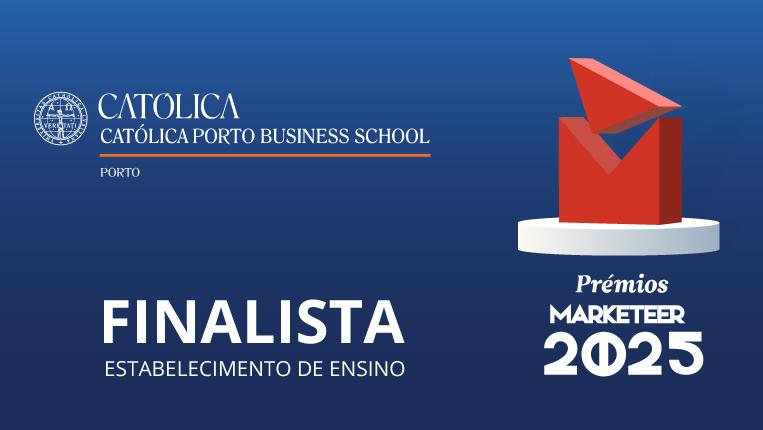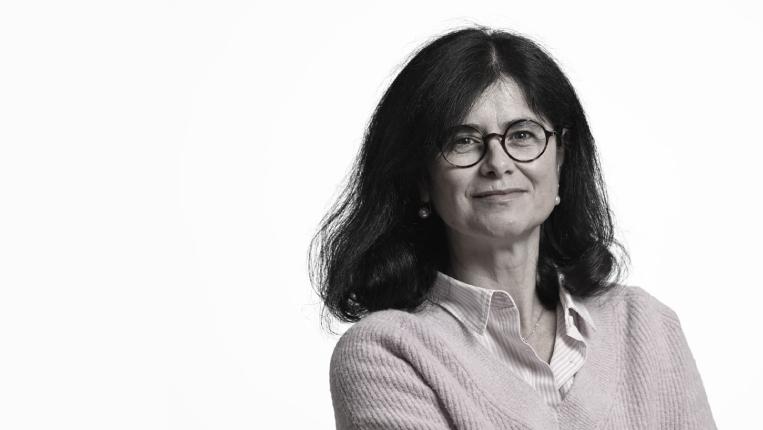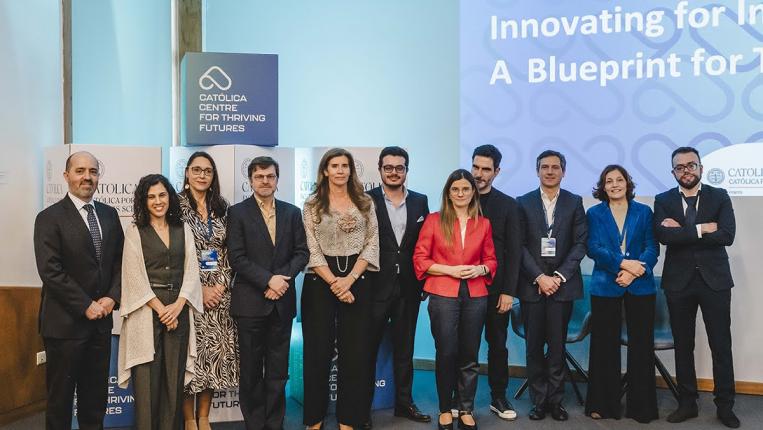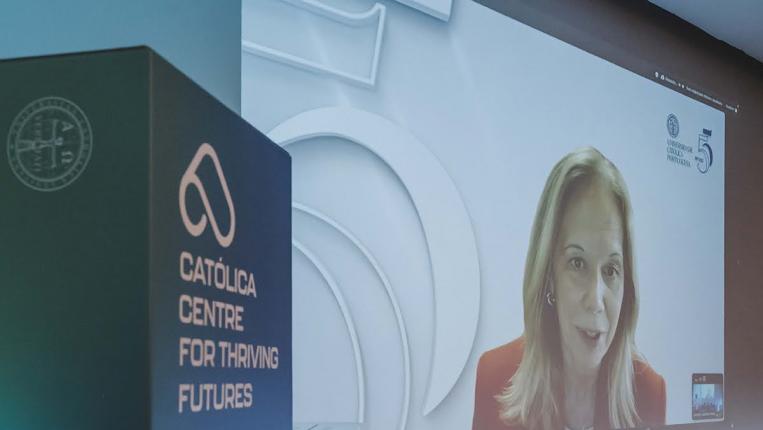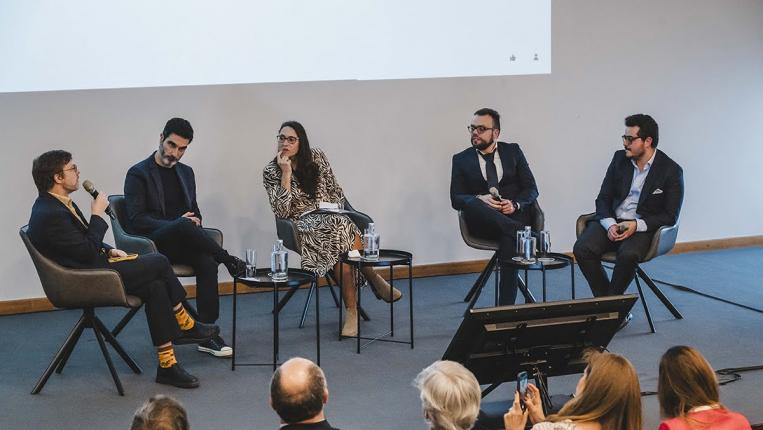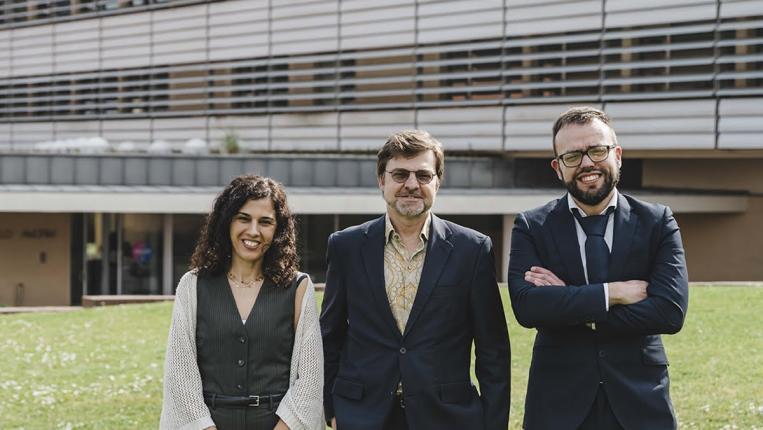On April 10th, Universidade Católica Portuguesa in Porto, in partnership with Galp, officially launched the Católica Centre for Thriving Futures. The Centre brings together three key schools – Católica Porto Business School, Faculty of Biotechnology, and Porto School of Law - recognising that today's most pressing challenges require expertise across multiple disciplines. The main question driving the discussions was both urgent and ambitious: “How can innovation accelerate the creation of thriving futures?”
“Today marks more than just the inauguration of a new centre,” stated Isabel Capeloa Gil, rector of Universidade Católica Portuguesa, adding “it signifies our commitment as a university, with our schools and researchers, to work together towards a more sustainable world.” Isabel Capeloa Gil highlighted the critical need for sustainability to take a central role in education and leadership: “in a world increasingly defined by complexity and uncertainty, sustainability can no longer be a side conversation - it must become the core essence of how we educate, how we lead.” “The Centre for Thriving Futures will bring together interdisciplinary research, bold ideas, and real-world partnerships. It will be a hub where entrepreneurs, industry leaders, academics, and students will be able to co-create solutions that are not only resilient but regenerative: our aim is not simply sustainability but thriving,” the rector concluded.
The presentation of the new Católica Centre for Thriving Futures was led by Wayne Visser, director of the Centre and Chair in Regenerative Business, Innovation and Technology at Católica Porto Business School, with the co-leaders of the Centre Marta Portocarrero from the Faculty of Law - Porto School, and Pedro Rodrigues from the Faculty of Biotechnology.
With the support of Galp, the new Católica Centre for Thriving Futures positions itself as a catalyst for systemic change, bringing together different disciplines to tackle global challenges.
“We are very excited about the interdisciplinarity,” said Wayne Visser. “It’s one of the key elements that will make this initiative unique — the convergence of policy, technology, and business analysis.” Marta Portocarrero highlighted the role of Católica Porto Law School in supporting the Centre’s mission, explaining that “this will involve critically analysing existing European and national regulations and assessing their impact on companies’ strategic goals for innovation and sustainability. Where necessary, we will also propose amendments to current legislative frameworks to better support these objectives.” From the biotechnology perspective, Pedro Rodrigues underlined the strategic role the School of Biotechnology plays in advancing technological solutions to global challenges such as Alzheimer’s disease, for example. “Our contribution lies in integrating knowledge and applying AI-driven tools and data analysis to foster innovation across multiple domains — including healthcare, agri-food, and environmental systems,” he noted.
Ana Casaca, global director of Innovation at Galp, delivered the keynote speech, offering valuable insights into innovation and competitiveness in Europe. She underscored the critical role of collaboration between academia and industry in driving sustainable solutions. “Many companies are already making efforts to collaborate with research institutions, but we need to go much further,” she noted. “That’s why I’m proud to be here as a founding member of the Católica Centre for Thriving Futures.” She concluded with a call to action: “Let us use the Centre to boost collaboration and unlock our full potential.”
A panel discussion titled “The Role of Innovation in Building Thriving Futures,” moderated by Wayne Visser, brought together a diverse set of voices, including Manuel Andrade from Galp, Conceição Silva from Católica Porto Business School, Pedro Rodrigues from the Faculty of Biotechnology, and Pedro Cerqueira Gomes from the Faculty of Law – Porto School. The session highlighted the Centre’s commitment to transdisciplinary collaboration as a driver of systemic change. In line with Ursula von der Leyen’s assertion that “Europe must become better at transforming great ideas into great businesses,” the discussion addressed not only the opportunities but also the structural barriers to innovation. One of the key challenges raised was the complexity of procurement processes in both public and private sectors, which often slows down the integration of innovative and sustainable solutions into practice.
“At Universidade Católica Portuguesa we are very proud of this initiative — not only for its bold vision, but for the way it brings together the complementary strengths of our different schools. It’s a truly interdisciplinary effort, bringing together Law, Policy, Science, Technology and Business to drive real-world impact,” said Isabel Braga da Cruz, pro-rector of Universidade Católica Portuguesa for Porto and Sustainability.
With the launch of the Católica Centre for Thriving Futures, Universidade Católica is taking a bold step toward bridging academic knowledge and real-world challenges, positioning itself as a driver of positive transformation and a catalyst for hope.
We are inviting progressive companies to join Galp as a founding partner of the Centre, to benefit from tailored policy, technology and business analysis, in line with their commitment to sustainable development. For more information, please contact Wayne Visser at wvisser@ucp.pt.

